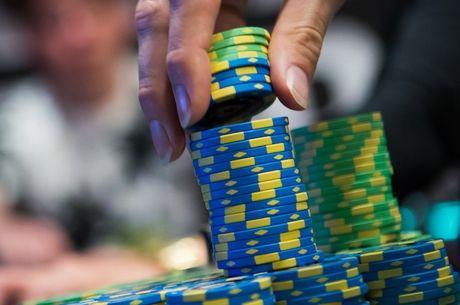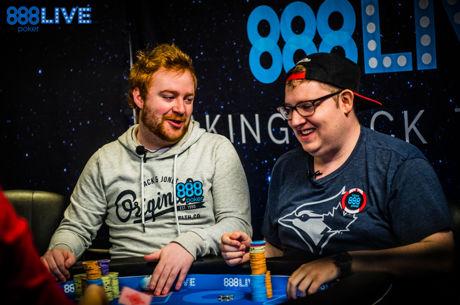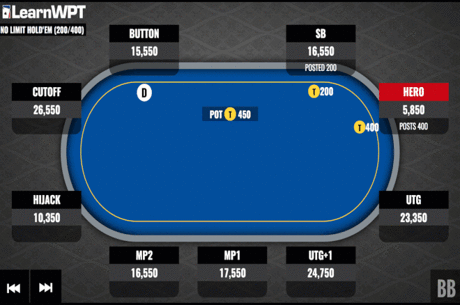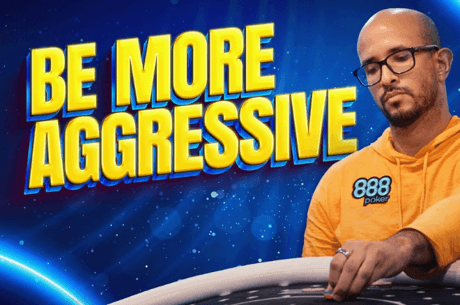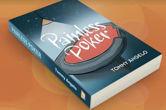Getting Comfortable With Wider Ranges: Small Blind Play
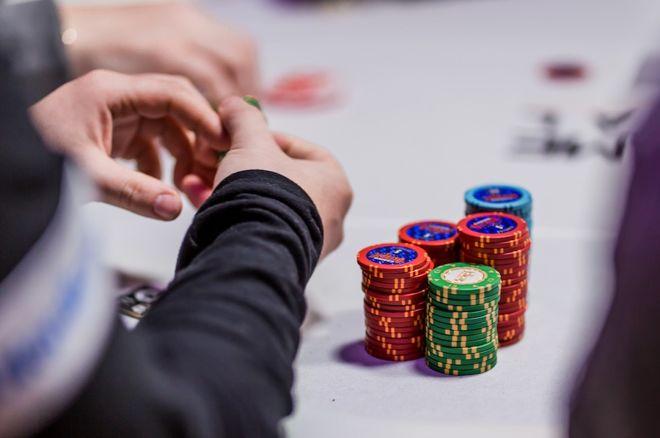
Last week, I discussed why and how we should get comfortable with playing wider ranges from the big blind. This week, I will address the same concept, only I will focus on small blind play.
How Often Should We Defend the Small Blind?
When I am in the small blind, I cannot widen my ranges as much to profit from loose opens for several reasons. First, I can't defend by calling too widely because the price is not as good even in cases where my call entices the big blind to come along as well.
Let's say I am in the small blind facing a steal attempt from the cutoff in a nine-handed multi-table tournament with antes that are 10 percent the size of the big blind. If villain makes a 2.2x raise, the bet needs to work as a complete bluff only 47 percent of the time in order to break even. This means the players left to act must collectively defend 53 percent of the time to prevent him from making money with any two cards.
Once the player on the button folds, it is left up to me and the big blind. In order to call, I have to put in another 1.7 BBs to see a flop in a 7.6 BB pot, assuming the player in the big blind calls as well. This means that I have to win around 22 percent of the time to break even. If you recall from last week's article, this is more often than the 20 percent of the time the big blind would need to win had I folded.
But wait, it gets worse!
First, it is much harder to win 22 percent of the time in a three-way pot than it is to win 20 percent of the time in a heads-up pot.
Second, these numbers assume the big blind calls. If he folds, I would need to win almost 27 percent of the time against the opener to break even.
Third, I may not even get to see the flop since the player in the big blind could raise and squeeze me out of the pot. Even when all the planets align and the player in the big blind just calls, I still have to play out of position with a capped range in a multi-way pot. Not good.
For these reasons, flatting from the small blind with a wide range is a really bad idea. Instead, we should be three-betting with the majority of the hands we play from here.
What Sort of Hands Should We Defend?
Most of the absolute garbage should be folded since the small blind range is so small. This means the remaining hands should be split up into high, medium, and low categories that are stronger on average than the ones from the big blind range.
Obviously, we want to three-bet with the highest hands like big pocket pairs and big aces for value. Depending on a variety of factors, we may want to flat with a few medium hands like maybe 66-88 and suited Broadway hands.
This leaves the hands just below the flatting range for use as three-bet bluffs. These can include hands like ATo, A2s-A5s, J9s, and the like. Again, most hands worse than this can just be folded.
How Often Do We Need to Win?
Let's say I want to 3x the villain's 2.2x open to 6.6x as a bluff. Like the big blind, I get to use my dead money as part of my bet, so I really only have to risk another 6.1 BBs to win a total pot of 10.7 BBs.
This means that my bluff needs to work 57 percent of the time to break even compared to the 54 percent fold equity a big blind three-bet needs to generate.
Not only that, we again have the problem of trying to fold out two players, the opener and the big blind, either of whom could have been dealt a playable hand. For these reasons, the bluff will not succeed as often, which is why we attempt it with a stronger range that plays well postflop.
Conclusion
As you can see, all the problems of playing from the big blind are magnified when playing from the small blind. This means we do not have to defend it as often; however, we still need to fight for the pot at least some of the time, especially in cases where the player in the big blind is too tight.
Being out of position is what causes so much trouble for the players in these spots. Next week, I will discuss playing wider ranges when this is not the case because we have the beautiful button!

